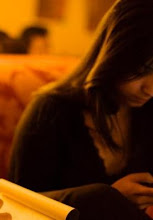Thus one of the harshest indictments against bystanders to genocide is that they are lulled by their own bigotry. Would Americans have stood by if the Rwandans were white, or if the Bosnians were overwhelmingly Christian? David Wyman, the leading historian of the United States' reaction to the Holocaust, cannot escape the conclusion that the country's passivity was driven by American anti-Semitism. As the poet Czeslaw Milosz wrote, of Bosnia, "The lives of the well-fed are worth more than the lives of the starving." Nelson Mandela said that Africans and Asians had to envy the willingness of the world to save Kosovo.
These kinds of biases are a particular concern for the press, which is supposed to be making judgments about news, not race. As Carr wrote, "An American newspaper correspondent in Europe is said to have laid down the rule that an accident was worth reporting if it involved the death of one American, five Englishmen, or ten Europeans." In 1970, the publisher of the New York Times, Arthur Ochs Sulzberger, asked his editors, "Why is it that when the National Guard kills four white students we put it on page I, and when the National Guard kills six black people we put it on page 32?" When an explosion of army munitions in Lagos killed over a thousand fleeing Nigerians, it was not front-page news in the Chicago Tribune, which instead ran pieces on Illinois prescription drug coverage and corruption charges against a Chicago businessman, How can one justify this kind of partiality? At home, it is intolerable; abroad, it may be equally intolerable, but it is commonplace.
From Freedom's Battle: The Origins of Humanitarian Intervention by Gary Bass
